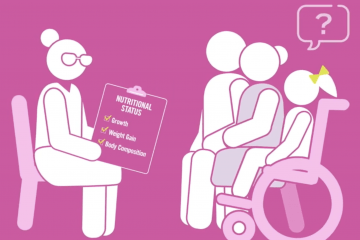OPD Feeding or Swallowing Difficulties
Oropharyngeal dysphagia, or OPD, is an impairment of the oral or pharyngeal phases of the swallow. This can impair muscle movements and coordination of the mouth, such as the lips, tongue, jaw, cheeks, palate, and also muscles of the pharynx and the entry to the airway.
This can impair functions such as eating and drinking, sucking and swallowing. In the early years, this can impact children as they are sucking from the breast or bottle. As children progress through their transitional feeding, this will also impact on spoon feeding pureed and ground and minced type foods, drinking from a cup or a straw, and also biting and chewing chewable or hard foods.
We know that approximately 65% of children can experience oropharyngeal dysphagia, but this may be more prevalent in children with impaired gross motor function skills. Because the oral phase and pharyngeal phase are innovated by different parts of the brain, a child may look very competent with oral feeding but have difficulties with swallowing, and that is a problem. Some children might have more oral phase impairment, but have quite a safe reflexive swallow. Each child needs to be evaluated individually.
As a parent, you know your child the best. If you have concerns about your child's feeding or swallowing difficulties, let your doctor know and they can refer you to a dysphagia team and a speech pathologist so all of those aspects of the mealtime can be adequately assessed and we can support you to have the best mealtime experiences with your family and child.




